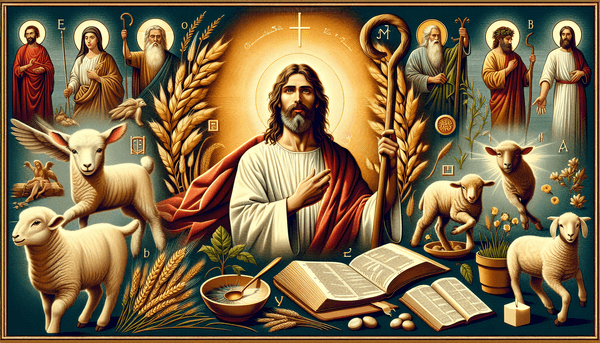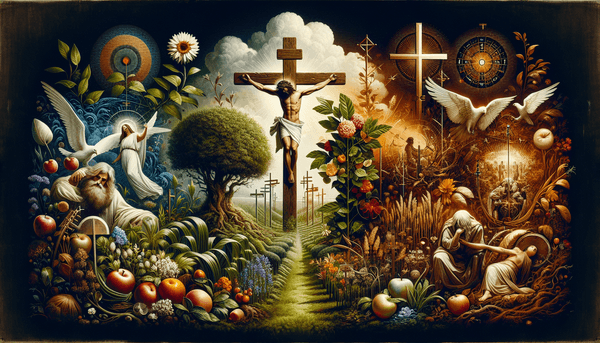The Divinity of Christ in the Gospel of John
In the Gospel of John, chapter 4, we encounter the compelling narrative of Jesus conversing with the Samaritan woman at the well. Through His words, 'Whoever drinks the water I give them will never thirst. Indeed, the water I give them will become in them a spring of water welling up to eternal life' (John 4:14), Jesus introduces the concept of 'living water,' a symbol of eternal life, hinting at His divine ability to bestow life everlasting. This offer transcends the physical realm, suggesting a divine providence that only God could grant. Furthermore, by asserting 'I am he' (John 4:26) to the Samaritan woman, Jesus echoes the divine declaration 'I AM WHO I AM' (Exodus 3:14) revealed to Moses, subtly asserting His divine nature. These moments in John 4, while not overt proclamations, subtly weave the divinity of Christ into the fabric of His interactions and teachings.
Jesus' High Priestly Prayer in John 17
Chapter 17 of John's Gospel reveals the intimate communion between Jesus and the Father through Jesus' High Priestly Prayer. In this prayer, Jesus reflects on the glory He shared with the Father 'before the world began' (John 17:5), indicating His pre-existence and participation in the divine glory. This prayer not only showcases Jesus' divine nature but also His desire for His disciples to witness this glory (John 17:24) and to experience the unity that He shares with the Father (John 17:21-23). Jesus' prayer illuminates His divine identity and His longing for His followers to be drawn into the divine fellowship, an invitation to partake in the sacred relationship that defines the Godhead.






